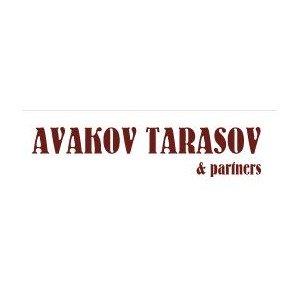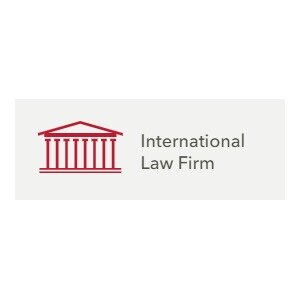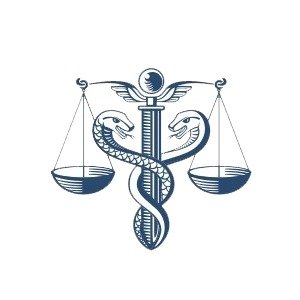Best Sanctions & Export Controls Lawyers in Moscow
Share your needs with us, get contacted by law firms.
Free. Takes 2 min.
List of the best lawyers in Moscow, Russia
About Sanctions & Export Controls Law in Moscow, Russia
Sanctions and export controls are legal measures that regulate the international trade of goods, technology, services, and assets. In Moscow, Russia, these laws are shaped by both domestic policies and the evolving international environment. Sanctions can take the form of restrictions imposed by foreign governments or international organizations on Russian individuals, entities, and state sectors, or by Russian authorities in response to external measures. Export controls govern what goods, software, and technologies businesses and individuals can send outside the country or bring in, including demanding specific licenses for sensitive items. Both sets of laws aim to protect national security, promote foreign policy goals, and ensure legal compliance for entities operating within and beyond Russia's borders.
Why You May Need a Lawyer
Legal advice is crucial in the field of sanctions and export controls due to the complexity and high stakes involved. Here are common situations where a lawyer’s expertise is indispensable:
- Navigating trade restrictions or embargoes that impact your business or assets
- Facing investigations for alleged violations of sanctions or export control regulations
- Exporting or importing goods that may have military, dual-use, or sensitive status under Russian or international law
- Engaging in cross-border transactions with countries or parties under sanctions
- Seeking licenses or government approvals for specific exports or imports
- Managing compliance risk in multinational operations
- Responding to penalties, asset freezes, or blocked transactions
- Drafting contracts that minimize exposure to sanctions-related breaches
- Dealing with foreign partners or suppliers subject to restrictions
- Reviewing company procedures and policies for sanctions compliance
A knowledgeable sanctions and export controls lawyer helps clarify your obligations, reduce legal risk, and defend your interests in regulatory proceedings.
Local Laws Overview
Sanctions and export controls in Moscow, Russia, are governed by a combination of federal laws, government decrees, and regulations from specialized authorities like the Federal Service for Technical and Export Control (FSTEC) and the Ministry of Economic Development. Key aspects include:
- Sanctions Regulations: These cover measures imposed by Russia in response to foreign sanctions or as part of foreign policy objectives, including restrictions on certain imports, exports, and dealings with specific countries, individuals, or sectors.
- Export Control Laws: Russia maintains a list of goods, technologies, and services subject to export controls, especially those with dual-use or military applications. Exporters must often obtain licenses, ensure proper documentation, and confirm counterparties are not on restricted lists.
- International Considerations: Because many entities in Moscow trade internationally, they may be affected by non-Russian sanctions regimes, such as those of the United States, European Union, or United Nations, which might target Russian nationals or businesses.
- Compliance Requirements: Russian companies are required to implement internal compliance programs to detect and prevent sanctions violations and may face severe penalties for infringements, including fines, license revocations, and criminal liability in egregious cases.
Understanding the interplay between local and international regulations is essential for businesses and individuals operating in Moscow.
Frequently Asked Questions
What are sanctions and export controls?
Sanctions are restrictions imposed by governments or international bodies to limit dealings with specific countries, entities, or individuals. Export controls are laws that govern the cross-border transfer of goods, technology, and services, especially those with security implications.
Who enforces sanctions and export control laws in Russia?
Enforcement is primarily the responsibility of federal agencies such as the FSTEC and the Federal Customs Service, as well as other regulatory and law enforcement bodies.
What types of goods are subject to export controls?
Goods with military use, dual-use technologies (items with both civilian and military applications), nuclear materials, and items on specific government lists are commonly subject to export controls.
Can a Russian company trade with a foreign entity under sanctions?
In general, trade with a sanctioned entity is either prohibited or strictly regulated. Violations may result in significant penalties, so legal consultation is critical before proceeding with such transactions.
What is a dual-use item?
A dual-use item is a product, technology, or software that can be used for both civilian and military purposes, subject to stricter export controls under Russian law.
Are there penalties for violating sanctions or export control laws?
Yes. Penalties can include substantial fines, blocking or forfeiture of assets, suspension of business activities, and even criminal liability, depending on the severity of the violation.
Do international sanctions affect individuals residing in Russia?
Yes, international sanctions may impact individuals in Russia, particularly if they have dealings with foreign banks or entities or if they are named on foreign sanctions lists.
How can I check if a counterparty is under sanctions?
Government authorities publish lists of sanctioned individuals and entities. Legal counsel can provide up-to-date information and recommendations for proper due diligence procedures.
Can I apply for a license to export controlled items?
Yes, the Russian government issues licenses for many controlled exports. A lawyer can help you prepare the necessary documentation and navigate the application process.
What should I do if I am notified of a sanctions investigation?
Seek immediate legal assistance. A lawyer can guide you on how to respond, ensure your rights are protected, and develop a strategy to manage the investigation process.
Additional Resources
If you need more information or assistance related to sanctions and export controls in Moscow, consider the following resources:
- Federal Service for Technical and Export Control (FSTEC) - Main regulatory body for export control and compliance.
- Federal Customs Service - Provides information on customs regulations and enforcement.
- Ministry of Economic Development of the Russian Federation - Involved in trade regulation and licensing.
- Russian Association of Lawyers - May provide referrals to professionals specializing in sanctions law.
- Chamber of Commerce and Industry of the Russian Federation - Offers guidance for businesses engaged in international trade.
Next Steps
If you believe your business or personal dealings may be affected by sanctions or export controls in Moscow, here is how to proceed:
- Collect all relevant documentation related to your international transactions, business partners, and goods or services in question.
- Consult a qualified lawyer with experience in Russian and international sanctions and export control regulations.
- Request an initial assessment of your situation to determine compliance obligations and potential legal risks.
- Develop a compliance plan tailored to your specific needs, including staff training and internal monitoring systems.
- Implement regular reviews to keep up with changes in local and international laws.
- Stay informed by monitoring official announcements from Russian authorities and international organizations regarding new sanctions or regulatory updates.
Early legal intervention is key to ensuring your transactions and business operations remain compliant and protected from legal challenges.
Lawzana helps you find the best lawyers and law firms in Moscow through a curated and pre-screened list of qualified legal professionals. Our platform offers rankings and detailed profiles of attorneys and law firms, allowing you to compare based on practice areas, including Sanctions & Export Controls, experience, and client feedback.
Each profile includes a description of the firm's areas of practice, client reviews, team members and partners, year of establishment, spoken languages, office locations, contact information, social media presence, and any published articles or resources. Most firms on our platform speak English and are experienced in both local and international legal matters.
Get a quote from top-rated law firms in Moscow, Russia — quickly, securely, and without unnecessary hassle.
Disclaimer:
The information provided on this page is for general informational purposes only and does not constitute legal advice. While we strive to ensure the accuracy and relevance of the content, legal information may change over time, and interpretations of the law can vary. You should always consult with a qualified legal professional for advice specific to your situation.
We disclaim all liability for actions taken or not taken based on the content of this page. If you believe any information is incorrect or outdated, please contact us, and we will review and update it where appropriate.
















